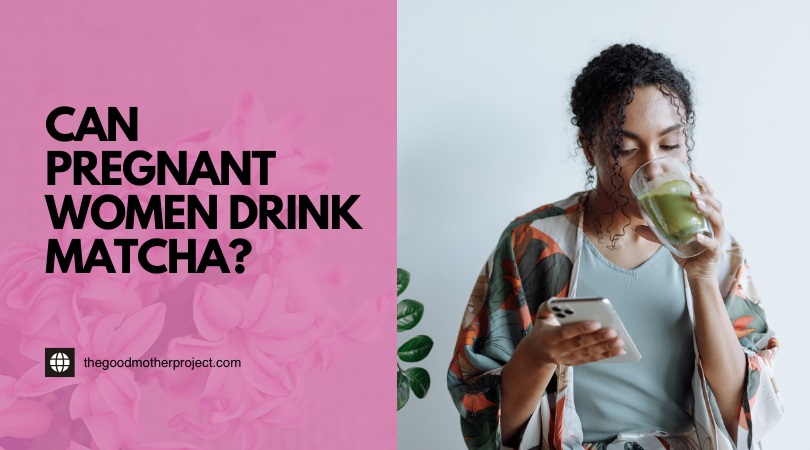Last Updated on January 6, 2025
Pregnant women can drink matcha in moderation. It’s essential to consult a healthcare provider before including it in your diet.
Matcha, a finely ground green tea, has gained popularity for its health benefits. Rich in antioxidants and nutrients, it may offer advantages like improved mood and focus. However, during pregnancy, women need to be cautious about caffeine intake. Matcha contains caffeine, which can affect both the mother and the developing baby.
Experts generally recommend limiting caffeine to about 200 mg per day during pregnancy. Pregnant women should consider their overall diet and lifestyle before incorporating matcha. Consulting a healthcare professional ensures a balanced approach. Enjoying matcha responsibly can be part of a healthy pregnancy, provided it aligns with individual health needs.
Matcha: A Brief Introduction
Matcha is a finely ground green tea powder. It has become popular in many diets. Pregnant women often wonder if it is safe to consume. This section explores what matcha is and its rise in wellness culture.
What Is Matcha?
Matcha is made from specially grown tea leaves. These leaves are shade-grown for several weeks. This process boosts their nutrient content. The leaves are then harvested, steamed, and dried. Finally, they are ground into a fine powder.
- High in antioxidants: Helps fight free radicals.
- Boosts metabolism: Supports weight management.
- Enhances focus: Contains L-theanine for better concentration.
- Rich in vitamins: Provides essential nutrients.
The Rise Of Matcha In Wellness
Matcha has gained popularity in the wellness community. People appreciate its health benefits. Many use it in smoothies, lattes, or baking.
| Benefits of Matcha | How to Consume |
|---|---|
| Boosts energy | Matcha latte |
| Supports relaxation | Matcha smoothie |
| Aids digestion | Matcha baked goods |
Many people choose matcha over coffee. It provides a gentle energy boost. Pregnant women should consult their doctor before trying it. Understanding matcha’s impact is crucial for a healthy pregnancy.
Pregnancy And Caffeine Consumption
Caffeine is common in many drinks and foods. Pregnant women often wonder about its safety. Understanding caffeine’s effects is crucial for expecting mothers.
Effects Of Caffeine On Pregnancy
Caffeine affects everyone differently. During pregnancy, it can impact both the mother and baby.
- Increased Heart Rate: Caffeine can raise the heart rate.
- Risk of Miscarriage: High caffeine intake may increase miscarriage risk.
- Low Birth Weight: Babies born to mothers with high caffeine may weigh less.
- Impact on Sleep: Caffeine can disrupt sleep patterns.
How Much Caffeine Is Safe?
Experts recommend limiting caffeine during pregnancy. The safe amount varies.
| Source of Caffeine | Caffeine Content (mg) | Recommended Limit (mg) |
|---|---|---|
| 8 oz Coffee | 95 | 200 |
| 8 oz Tea | 47 | 200 |
| Matcha (1 tsp) | 70 | 200 |
| Dark Chocolate (1 oz) | 23 | 200 |
Most experts suggest keeping caffeine under 200 mg per day. Pregnant women should monitor their total intake.
Debunking Myths: Matcha During Pregnancy
Many myths surround the consumption of matcha during pregnancy. Some believe it is harmful, while others say it has health benefits. Understanding the facts is crucial for expectant mothers. Let’s explore the truth about matcha and its safety during pregnancy.
Is Matcha Safe For Pregnant Women?
Matcha is a type of green tea made from finely ground leaves. It contains caffeine, but in lower amounts than coffee. Pregnant women can safely consume matcha in moderation.
- Matcha contains antioxidants.
- It boosts energy without jitters.
- It may improve mood and focus.
Experts recommend limiting caffeine intake to 200 mg daily during pregnancy. One cup of matcha has about 30-70 mg of caffeine. Pregnant women should monitor their total caffeine intake.
Benefits And Precautions
Matcha offers several benefits for pregnant women:
| Benefits | Description |
|---|---|
| Rich in Antioxidants | Helps fight free radicals in the body. |
| Boosts Metabolism | May help maintain a healthy weight. |
| Improves Mood | Can enhance relaxation and reduce stress. |
Despite these benefits, some precautions are necessary:
- Limit matcha to one cup daily.
- Avoid high-sugar matcha drinks.
- Consult a healthcare provider before consumption.
Staying informed helps pregnant women enjoy matcha safely. Understanding its benefits and risks is essential for a healthy pregnancy.
Frequently Asked Questions
Can Matcha Harm Pregnant Women?
Excessive caffeine in matcha may pose risks. Moderation is key; consult a healthcare provider for personalized advice.
What Are The Benefits Of Matcha During Pregnancy?
Matcha offers antioxidants and potential energy boosts. It’s best enjoyed in moderation for safety during pregnancy.
How Much Matcha Can Pregnant Women Drink?
Limit matcha to one cup daily. This helps manage caffeine intake while still enjoying its benefits.
Is Matcha Safe In The First Trimester?
Moderate consumption is generally safe in the first trimester. Always check with a healthcare professional for personalized guidance.
Does Matcha Affect Fetal Development?
Excessive caffeine may impact fetal development. Stick to recommended limits to ensure a healthy pregnancy.
Can Matcha Replace Coffee During Pregnancy?
Matcha can be a coffee alternative. It contains less caffeine and offers additional health benefits when consumed wisely.
Conclusion
Pregnant women can enjoy matcha in moderation. Its antioxidants offer benefits, but caffeine levels require caution. Always consult your healthcare provider before adding new foods to your diet. Balancing your cravings with health is essential. Stay informed and prioritize your well-being during this special time.








